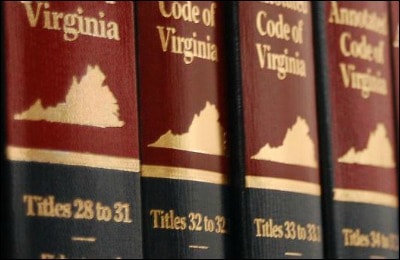 Members of the Virginia legislature have concluded their work for the 2020 session. Included in their passed bills was a major change to Virginia Code § 8.01-223.1 concerning the assertion of constitutional rights in civil actions. The new law, which goes into effect on July 1, 2020, will make proving adultery easier in divorce and other family law cases in Virginia.
Members of the Virginia legislature have concluded their work for the 2020 session. Included in their passed bills was a major change to Virginia Code § 8.01-223.1 concerning the assertion of constitutional rights in civil actions. The new law, which goes into effect on July 1, 2020, will make proving adultery easier in divorce and other family law cases in Virginia.
Parties in Virginia civil actions have previously had broad protection of their constitutional rights, and courts have been entirely prohibited from using any assertion of constitutional rights against them. Beginning July 1, 2020, when a party to a family law case invokes their Fifth Amendment right against self-incrimination and refuses to answer questions regarding their alleged adultery, judges may now make an “adverse inference” against that party.
Adultery is a crime in Virginia—a Class 4 misdemeanor under Virginia Code § 18.2-365. Therefore, a spouse accused of adultery in a divorce case can assert their Fifth Amendment right against self-incrimination, and refuse to answer questions about the adulterous behavior. Married individuals accused of having affairs have previously been able to decline to answer questions with limited repercussions.
This new law simply means that judges may now draw negative conclusions against the accused spouse from their refusal to answer questions about their sexual conduct. Asserting a constitutional privilege against testifying is optional and can be waived by the witness. Declining to respond to an allegation by asserting a privilege is now tantamount to admitting that there is no alternative explanation that would be helpful to the accused. While a judge is unlikely to believe on silence alone that every detail has been accurately recounted by the accuser, the judge can conclude that the silent person was willing to take that risk and still continued not to speak.
Prior to this change in the law, parties accused of adultery routinely invoked their Fifth Amendment privilege and refused to provide their spouse and the court with salacious details about their extramarital relationships. Courts were not permitted to draw any negative inferences against a party who refused to answer questions in this way. The entire burden to prove adultery thus fell on the accusing spouse, with no obligation for the accused to answer questions or provide documents related to the adultery. Now the accused must weigh the benefits of keeping silent against the burden of the court’s inference against them when they decline to explain their side of the story.
Virginia law requires “clear and convincing” evidence for a finding of adultery, a higher standard of proof than other grounds for divorce. The new law does not change that burden. However, by allowing the court to draw an adverse inference based on the silence of the accused spouse, the new law essentially makes proving adultery easier in Virginia. When paired with witness testimony, photographs, text messages, atypical spending habits, and other available evidence, the adverse inference against the accused can be the final bit of proof a court needs to make a finding that extramarital sexual intercourse has occurred.
Adultery is relevant in Virginia divorce proceedings in several ways: (1) as a ground for divorce, (2) as a factor in the court’s equitable distribution of the assets and debts of the marriage and (3) in determining whether to award spousal support. On that last factor, a finding of adultery can have dramatic consequences. If the court finds that adultery has been committed by the party requesting spousal support, that finding can act as a complete bar to an award of any amount of spousal support. For more information, see Adultery and Divorce in Virginia.
The implications of the new “adverse inference” law can easily extend beyond just divorce cases, however. Consider a custody and visitation trial where one parent’s extramarital affairs are raised. If that parent invokes their privilege against self-incrimination and refuses to answer questions regarding those affairs, he or she loses the opportunity to explain any mitigating circumstances. Worse yet, that parent may damage their own credibility with the judge, who may now doubt the parent’s commitment to telling the full and complete truth.
Because of the now comparatively limited benefits of invoking their right to remain silent, parties who have been accused of adultery now need to more seriously consider waiving that right. But before doing so, individuals should consult with an experienced attorney to carefully weigh the legal pros and cons of this decision in their particular case.
The complete impact of this change to Virginia law won’t be known until these cases come before the trial and appellate courts, but there are serious potential implications for Virginia litigants with pending matters for divorce, custody, visitation and support. What was once a fairly straightforward choice for many parties to “plead the Fifth” on certain matters is now a more complicated question.
If you have questions about proving or defending against an allegation of adultery in your family law case, be sure to consult with an experienced attorney in your area. From offices in Fairfax, Manassas, Ashburn, Arlington and Fredericksburg, the family law attorneys at Livesay & Myers, P.C. represent clients throughout Northern Virginia. Contact us to schedule a consultation today.
